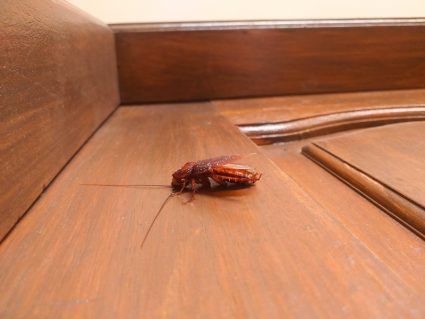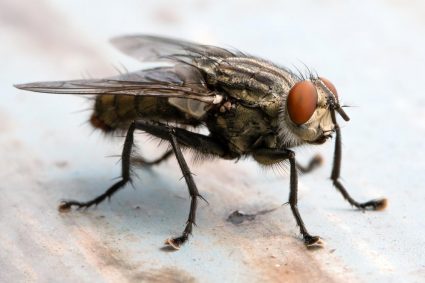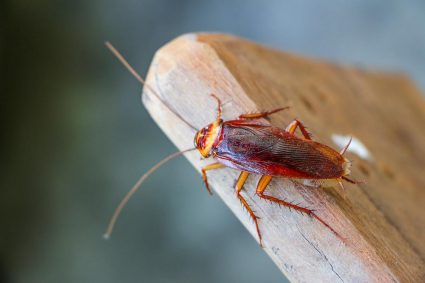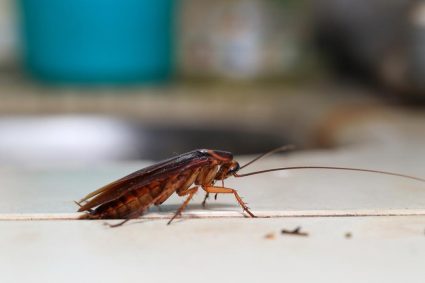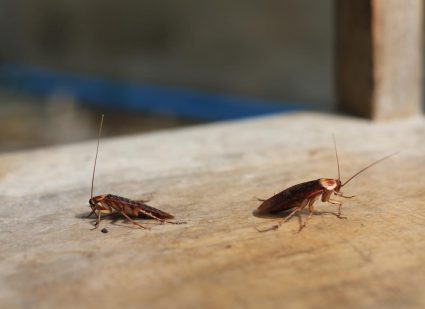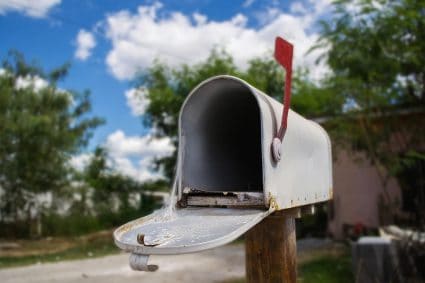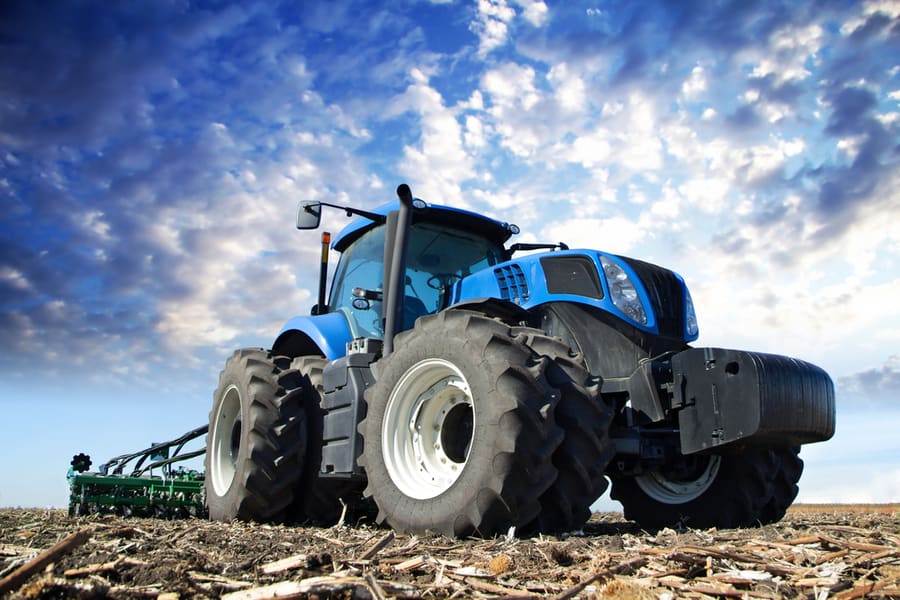
Every farmer knows that mice control is unavoidable in far equipment maintenance. However small you think they are, mice and other small rodents can cause severe damage to your favorite machinery, including tractors.
This article will guide you through some practical ways to eliminate these destructive rodents from your tractor. Here we go!
Tractors and other farm machinery provide a warm place for mice to hide. Should you delay deterring these small rodents, they can cause damage to your equipment that might cost thousands of dollars to fix.
Whether you’ve noticed signs of their presence already or you want to prevent an infestation, here are some strategies you can deploy:
- Keep your tractor and its surroundings clean.
- Stink up your tractor.
- Use natural mouse predators like cats, dogs, and owls.
- Set traps against the invading mice.
Here are four sure ways to keep mice out of tractors. Keep reading the guide to learn how to deploy them to keep rats at bay.
This article will guide you through some practical ways to eliminate these destructive rodents from your tractor. Here we go!
4 Ways To Keep Mice Out of Tractor
Mice and other rodents need a warm hiding place, especially during winter. But with a few tricks, you can protect your tractor from turning into a makeshift rodent accommodation for them.
We consider some of these strategies below:
1. Keep Your Tractor and Its Surroundings Clean
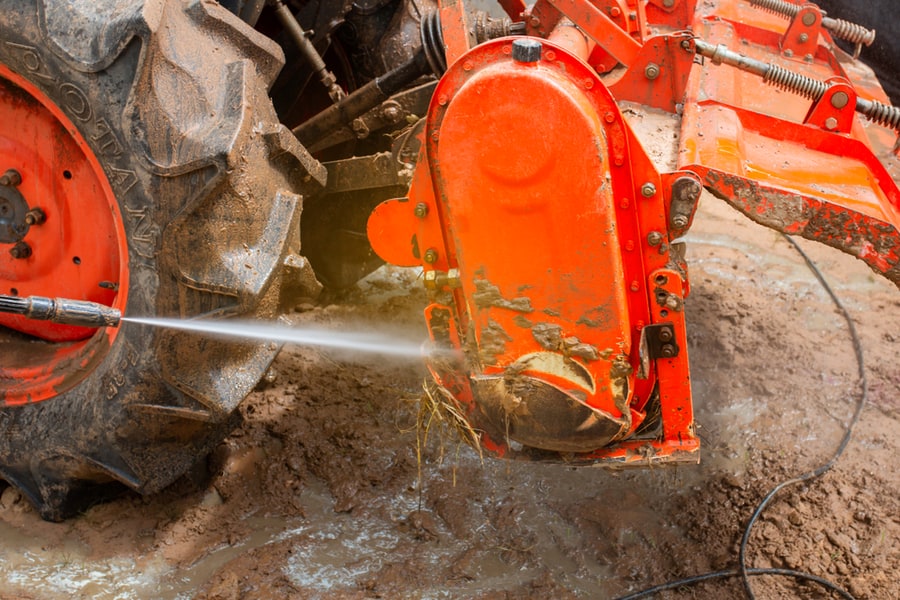
The best way to eliminate mice from tractors is to stop them from entering in the first place. Start outside, in the general farm area, and work your way into the equipment storage shed.
Cut down the bushes growing within your farm, trim the landscape and remove all fence rows. This will eliminate all possible hiding places for these critters. If they can’t enter your surroundings, they can’t invade your tractors.
After cleaning the yard, go into your equipment shed and get to work. Get some compressed air and clean your tractors before storing them away for the winter.
Sweep the shed and take out garbage, food crumbs, grains, and other items that attract mice. You may not want to remove some things from your equipment shed, like firewood and other heavy storage items.
Elevate these items from the ground to prevent mice from hiding between them. From that elevated surface, it will be difficult for mice to climb and get to them.
2. Stink Up Your Tractor

Most, if not all, animals are sensitive to smells, both the ones they like and those they don’t. Their strong senses of smell help them locate food and identify predators.
So, to keep mice out of your tractor, you must identify what smells they hate and use them against them. There are many natural and chemical options on your farm.
For example, a peppermint and cayenne pepper mix is one of the tested and proven combinations that work. Mix both with water until they form a thick paste. Then, spread the mixture around your tractor and where you notice mice disturbances.
Peppermint oil alone can also work if you are uncomfortable with the mixture above. Sprinkle peppermint oil on your tractor wires to prevent mice from chewing them.
Then get some cotton balls and soak them in peppermint oil. Drop these on the engine and the floor around the tractor.
The pungent smell will discourage mice from the tractor. But remember to remove these cotton balls before starting your tractor engine.
Mothballs are an example of chemical smells that mice can’t stand. They contain a harsh chemical substance called naphthalene, a flammable and toxic pesticide.
You can drop some mothballs around your tractor like you would with other scent repellants. Alternatively, tie these mothballs in a cloth or sock and hide them under your tractor’s hood. The engine is another place to keep these mothball mice repellant.
As stated earlier, mothballs are toxic and must be used cautiously. Your beloved pets will still feel whatever harsh effect it will have on mice that eat it.
So, exercise caution with this strategy and keep your pets safe and far away from it. Then, ensure enough ventilation because mothballs release a strong chemical smell that can be choking.
But if you store your tractor in an outdoor shed or barn using mothballs, that is still fine.
Finally, you can use the strong scent of dryer sheets against marauding mice. Place some dryer sheets around wires, the engine block, and under the tractor seat.
This strategy works best if you are storing your tractor away for a while, like during winter. Not only does the dryer keep mice away, but they also leave your tractor smelling nice.
3. Use Natural Mice Predators

Another technique to keep mice away from your tractor is using their natural predators. Cats are the most common rat predators, from tv shows to real life.
These feline animals have superb hunting skills and target smaller animals like birds, reptiles, and critters. So, if you notice tiny bite marks on your wires or mice running around your tractor, unleash your household cats.
However, there are many elements to consider before using this strategy. For example, not all cats respond to rats the same way.
While some cats will viciously hunt down mice, others may lounge away in your equipment shed while mice run free. So, first, understand your cat’s behavior and decide if it is the best predator to use against mice infestations.
Some people use dogs to scare small farmhouse pests instead of cats, but owls are another great alternative. When using animal predators, your best bet is to not rely on one specie. Get a few natural mice predators and let them roam around your equipment shed.
However, be careful not to combine this strategy with a harmful mouse prevention method. For example, let’s say you have set out mice poison to catch these unwanted visitors.
Your other farm animals may stumble on the mice poison, eat it, and get sick. This will double the problem on your hands, leaving you to fix the infestation and still treat a sick pet.
4. Set Traps Against Mice
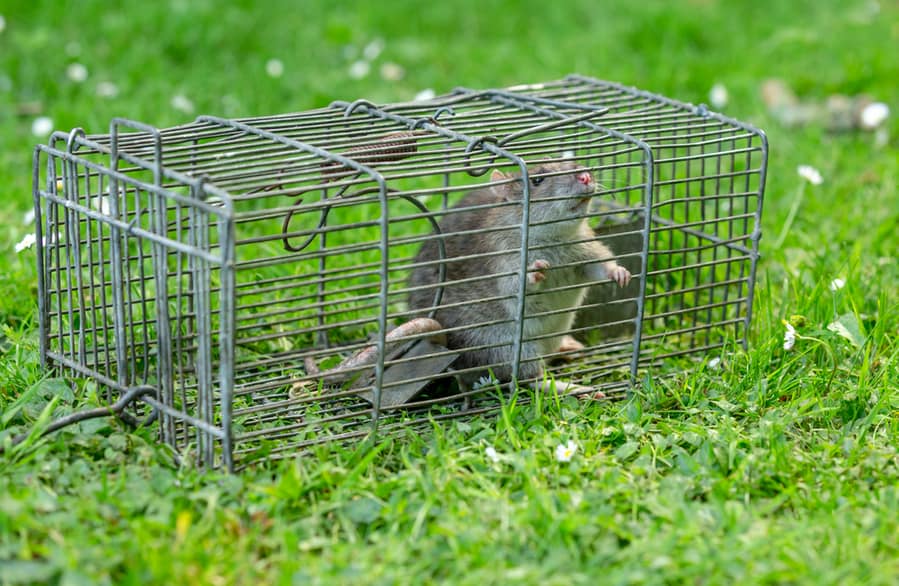
If mice have found their way into your tractor, using a trap will make an excellent way to get them out. There are various mouse traps in local hardware stores, ranging from regular spring traps to human options.
But the thing with traps is that they only catch a certain number of mice simultaneously. This strategy may not work if you have a full-blown infestation.
Mice tend to move around in groups, so if you spot one mouse, there is a chance that there are more. Alternatively, you can use ultrasonic repellants or electric mats instead of conventional traps.
Ultrasonic pest repellants work against mice because they cannot stand the noise. Fortunately, human ears cannot hear this ultrasonic noise. So, this repellant makes mice uncomfortable in your equipment shed without disturbing your peace at home.
The electric mat option is a humane way to protect your farm equipment from scurrying mice. This mat uses the same mechanism as an electric fence when you place it around your tractor.
It releases electric pulses that discourage rodents like mice from coming close. Any stubborn mice that try to risk it will experience a small electric jolt from these electric waves.
Conclusion
A mice infestation can set you back thousands of dollars spent repairing farm equipment. Winter is a prime time for these rodents that can nibble through equipment wiring and destroy your valuable investment.
However, with the strategies suggested above, you can protect your tractor all year round. There are many options, from scent repellants to electric traps.
Suppose you find picking one hard. You can see which works best for the mice infestation problem in your tractor. Start from the easiest until you decide on the best fit.
Frequently Asked Questions
Does Opening a Tractor Hood Scare Mice?
Yes, in a big way! With your tractor hood open, mice no longer have shelter to hide. They will feel exposed and find an alternative hiding spot.
What Is the Best Way To Keep Mice Out of Tractors?
As the saying goes, prevention is better than cure. The same rule applies to keeping tractors mice-free. Prevention works better than trying to eliminate the invading mice after an infestation.
Simple measures like clearing your equipment shed and trimming bushes can help with the problem.

